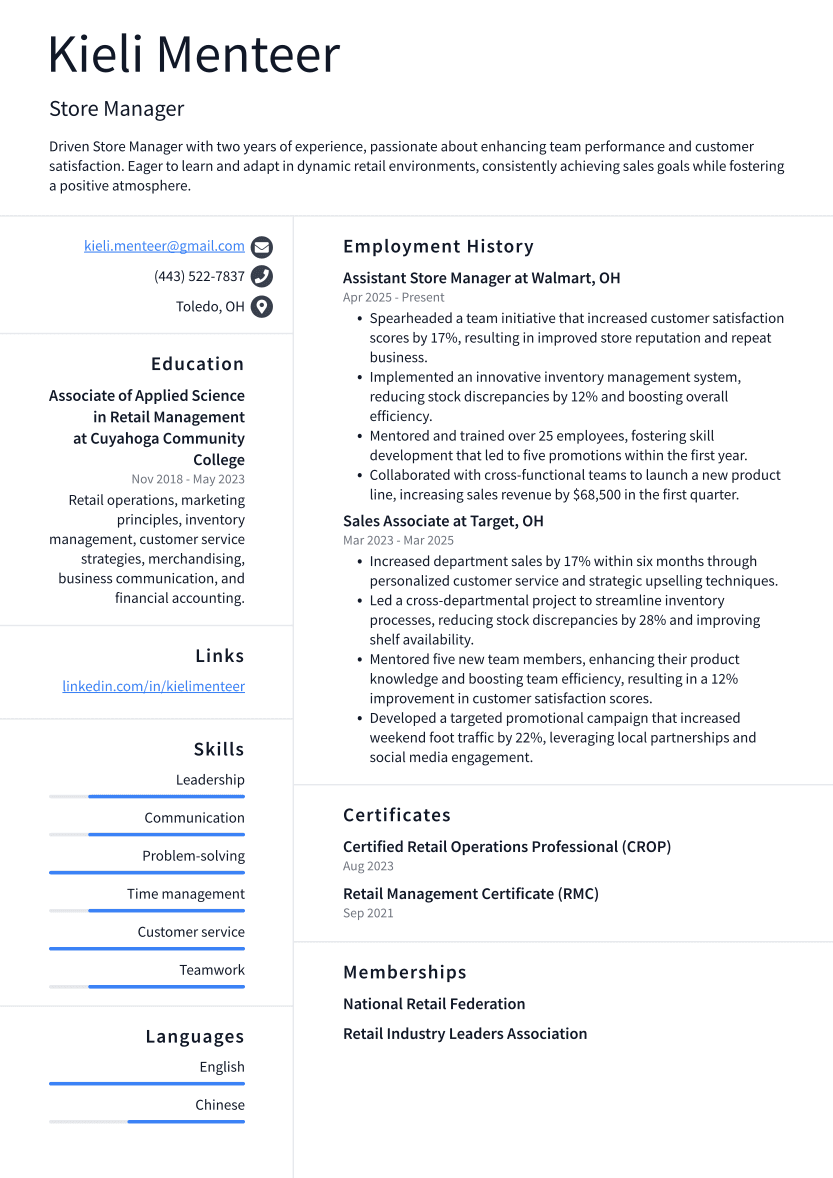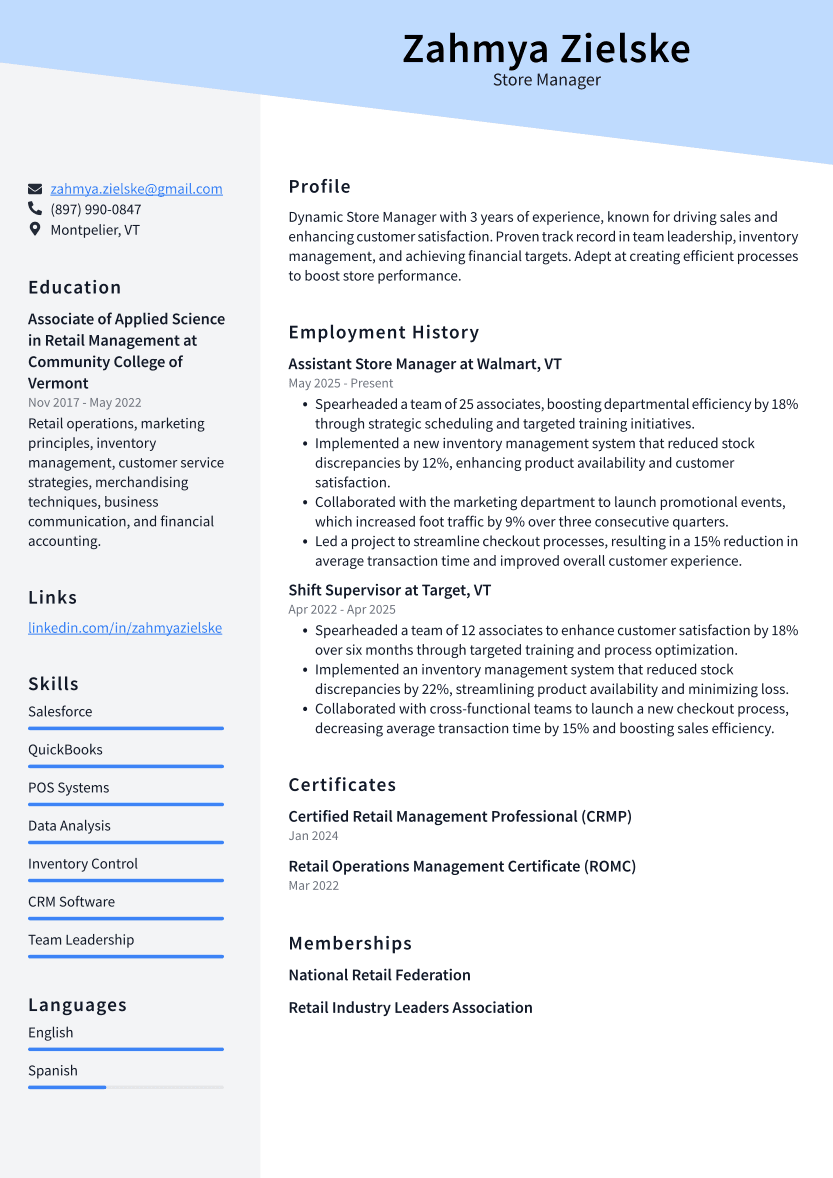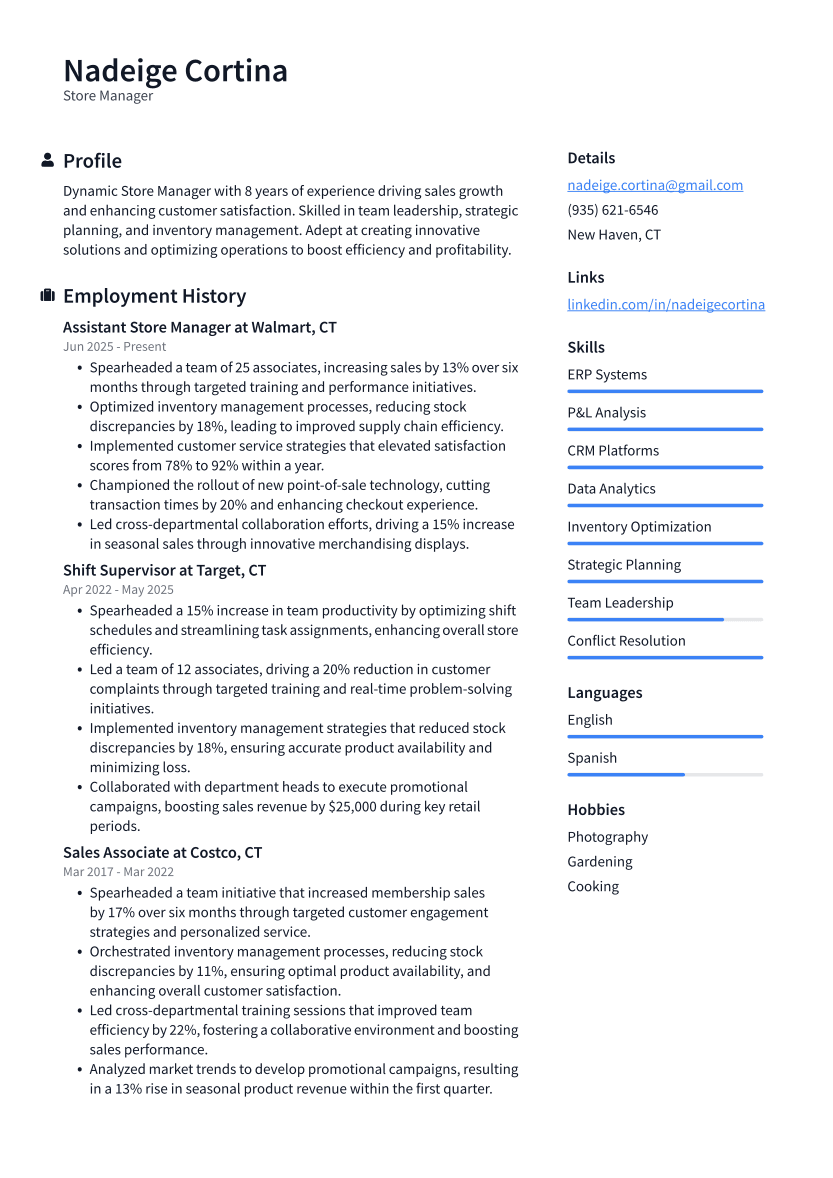Store Manager Resume Examples

Crafting an eye-catching resume for a Store Manager position? Vital. It's your silent elevator pitch, whispering professionalism and competence into the hiring manager's ear. In this article, you'll unravel the secrets to concocting a resume that's not just effective, but downright irresistible—watch as your qualifications leap off the page and into that interview chair.
Building Blocks of a Store Manager Resume
- Contact Information: Ensure recruiters can easily reach you.
- Summary: Briefly highlight your professional identity and goals.
- Work Experience: Detail roles that showcase management proficiency.
- Skills: Highlight competencies relevant to store management.
- Education: List academic qualifications that bolster your expertise.
Highlight leadership experience by detailing how you’ve motivated teams to exceed sales targets and improved store operations. Emphasize your ability to analyze retail trends, manage inventory efficiently, and provide exceptional customer service that boosts customer loyalty.
Pro Tip: Crafting a Store Manager resume with relevant skills and keywords is crucial to navigating past the ATS and catching the eye of potential employers.
Set Your Store Manager Resume Apart
Showcase your achievements by detailing specific improvements in sales figures or customer satisfaction scores, such as “boosted monthly revenue by 20% through strategic promotions and staff training.” Highlight leadership impact by mentioning team success, like “led a team to reduce inventory shrinkage by 15%, enhancing operational efficiency and profitability.”
- Use clear section headings in bold or larger font to create a visual hierarchy, making it easy for hiring managers to quickly locate key information such as experience, skills, and education.
- Opt for a clean, sans-serif font like Arial or Calibri, which ensures readability and maintains a professional appearance, while keeping font size between 10 to 12 points for body text.
- Incorporate white space strategically by using bullet points for lists and ensuring adequate margins, which prevents the document from appearing cluttered and helps guide the reader's eye through your accomplishments and responsibilities.
Pro Tip: Tailoring your Store Manager resume for each application highlights relevant skills and experience, making you stand out to employers.
Early Career Store Manager Resume Sample
An entry-level Store Manager resume focuses more on foundational skills and potential, while mid-level or senior resumes highlight extensive experience and proven leadership achievements.
Example: Experienced Store Manager Resume
A mid-level Store Manager resume balances demonstrated experience with leadership potential, unlike entry-level resumes that focus on basic skills or senior resumes that highlight extensive expertise and strategic oversight.
Resume Example: Senior-Level Store Manager
A senior-level Store Manager resume typically showcases extensive leadership experience, strategic decision-making skills, and a proven track record of driving business growth, contrasting with the more limited experience and focus on skill development found in entry-level or mid-level resumes.
Store Manager Resume Do’s, Don’ts, and Checklist
DO'S
- Highlight leadership achievements with tangible results.
- Emphasize skills like team management and customer relations.
- Include metrics to showcase sales growth and efficiency improvements.
DON'TS
- Don’t list every job you’ve ever had; focus on relevant experience.
- Don’t use jargon or vague language; be clear and specific.
- Don’t ignore formatting; a cluttered resume frustrates the eye.
CHECKLIST
- Highlight quantifiable achievements, such as sales increases or customer satisfaction ratings.
- Use action verbs to convey leadership and efficiency, such as "orchestrated" or "revamped."
- Tailor the resume for the specific retail company, aligning with its culture and goals.
- Avoid vague descriptors like "good" or "effective"; specificity counts.
- Skip unrelated work experience unless it directly informs your managerial skills.
- Dodge tired cliches like "team player" or "go-getter"; show, don't tell.






